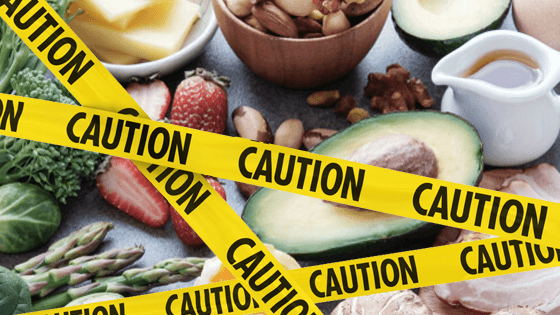Make no mistake – there are many dangers of the Keto diet that must be taken into consideration when making the switch.
When it comes to trendy diets, there are few more popular than the infamous Keto Diet. The Ketogenic diet is a high-fat, adequate-protein, low-carbohydrate diet that was first used as a treatment for children with epilepsy. Since then, has made its way to the mainstream with the help of social media.
Its design effectively mimics starvation through the limiting of carbs which, in turn, cause the body to enter the metabolic state known as Ketosis. Whilst Ketosis does increase the rate at which fat is burned, can be extremely dangerous for the health of your organs.
So, what’s so dangerous about it?
Firstly, let’s look at what happens to the body’s Cholesterol Levels…
Since the Keto diet stipulates an increase in fat consumption, it’s no surprise that food such as bacon, butter, meat and cheese are on the main menu for some. That sounds great, right? The problem is, all of these foods are high in saturated fats and can be key triggers to the increase of unhealthy cholesterol when consumed in excess.
Furthermore, these now-elevated cholesterol levels are one of the major players in developing heart disease, strokes, and peripheral artery disease.
Another danger that can arise from the misuse of the Keto Diet is the development of vitamin and mineral deficiencies. This can occur due to the “low-carb” nature of eliminating entire food groups.
These food groups can typically include, whole grains, beans and a great number of fruits and vegetables. Depending on which version of the Keto Diet you adopt, that’s a lot of nutrients you could potentially be missing out on.
Letting daily nutrient deficiencies go on for too long can result in many un-ideal symptoms, such as fatigue and mouth sores, brittle bones, amenorrhea, infertility and even negative effects on exercise performance and mental health.
Be careful.
Other side effects?
In addition to a few key dangers, there are also some notable side-effects.
Let’s start with the most unappealing first: bad breath.
Consistent bad breath has been reported by a large percentage of Keto dieters. This phenomena can be attributed to the build-up of Ketones in the breath as the body burns fat. As carbohydrates aren’t available as an energy source, the body starts to use proteins and fats as fuel, often resulting in a breath problem.
With so many people jumping on the diet, bad breath might be more common than ever!
Another side-effect you may experience on a Keto diet is: “brain fog.”
Even if you haven’t heard the term before, I’m sure you can imaging the sensation – getting up to do something then forgetting and sitting back down again in a state of confusion? Something along those lines.
This side effect typically occurs in the first week of starting a Keto diet. This is caused by the body (brain) suddenly being cut from its normal consumption of carbs, resulting in your body struggling to find an applicable energy source.
During this week you’ll likely feel unmotivated, lethargic and unfocused while your body scrounges around your fats and proteins looking for a suitable source of energy.
Accompanying the bad breath and brain fog, your new Keto diet might be responsible for the following symptoms:
- Sugar cravings
- Dizziness
- Nausea
- Difficulty getting to sleep
- Mood swings, and an
- Irritable stomach
There is no denying the Keto diet can be effective for weight loss. It’s our jobs as dietitians to help you achieve your goals, whilst considering the overall health of your body. We just want to ensure that science-based nutritional information including the dangers of the Keto diet are considered.
If you would like to discuss whether Keto is right for you, or work out a sustainable plan that will achieve results without cutting out carbohydrates, please give us a call!







